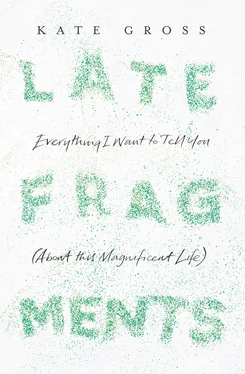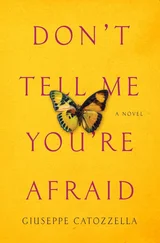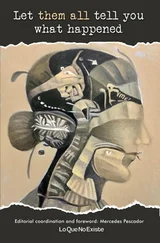I can spread my childhood memories out like a patchwork quilt. My quilt is brightly coloured, richly textured, a mix of the familiar and the foreign. My parents showed me the world from an early age, and experiencing it – drinking in the astonishing wonder it provides – has made me who I am. Because of them, ‘the ears of my ears awake and the eyes of my eyes are open’, as ee cummings put it. Aged about four, I saw a mongoose eat a snake on the banks of the Creek in Dubai. We used to go into the city on a Friday night for curry. In one corner of the garden of the small and scruffy café by the water sat a big cage. And inside the cage lived a mongoose, and the mongoose was fed snakes. After our curry we would have freshly squeezed fruit juice in a small bar staffed by nice Indian men who would pinch my fat, freckly Caucasian cheeks. I remember our weekend trips to the beach, where we would camp under enormous, starry skies. In 1986, age seven and three quarters, I lay on the cold sand with my friend Georgia, and watched Halley’s Comet fly overhead. We made a solemn promise that we would watch it together on its next cycle through the sky, when Georgia will be in her eighties and I will be long gone. During the hot, cloudless days we would blow up our inflatable lilos and drift out into the clear waters of the Persian Gulf in search of the Utter East. In the shallow seas, stingrays lurked under the rocks along with the cuttlefish. At night we children would whisper ghost stories in our tents as the heat of the day gave way to the cold desert night, until we were lulled to sleep by the sounds of our parents drinking cold beers around the campfire.
Because I was brought up far away, in a dusty, dry place where the inside of our blue Toyota was like a metal furnace most of the year round, England felt very foreign to me. Our summers spent in the Wiltshire countryside were as full of wonder as anything I experienced abroad – the everyday stuff of an English childhood rendered foreign by the exotica of my life on the Arabian Peninsula. I remember sunshine and an abundance of soft grass, so different from the scratchy Astroturf of our garden in Dubai. Smooth green banks of grass to roll down, to somersault over, to play leapfrog on. Delicate, pastel-coloured flowers waiting for me to snip them and stuff them in my flower press; flowers which for the first time in my experience looked as if they might actually house fairies, unlike the gargantuan, ferocious flora of the Middle East. Gentle, small butterflies landing on the buddleia outside Court House in our little village of Bishopstone, waiting for me to swoop in with my net. Paddling in too-cold streams with trousers rolled up, learning how to build dams.
As a family, we are travellers. Exploring is part of our DNA, just as much as being shortsighted. We are addicted to the smell of elsewhere which hits when you descend from a plane, the excitement of buying milk in a foreign supermarket. My grandfather spent his war in the intelligence corps, in India and Burma, and returned to India with the BBC afterwards. Mum remembers the presents he brought home: exotic silks and carvings, and stories of a place which captivated him. In Kathmandu, when I was six, I saw the Living Goddess, a girl about my age who was locked inside an ornately carved wooden house, with dark kohled eyes and a shiny red and gold dress. How I envied her then, being chosen to be a goddess. But I thought she looked so sad, and as though she wanted very much to be able to play as I could. In Thailand I smelled the cloying odour of durian fruit while we floated down the khlongs of Bangkok. Butterflies of incredible size and colour flitted around me as we walked through the jungle. Black leeches attached themselves to our feet and legs as we hopped over enormous puddles and overflowing rivers in the pouring rain. As a child brought up in the desert, this was my first encounter with the many-shaded green of the tropics, the clichéd wonder of independent travel which would only grow during my university holidays.
There are so many places I wanted to take my boys. Places I have been and seen, and places I have not. To India, to see the coracles floating down the river at Hampi and to hear stories of the oldest civilisations. To Vietnam, to eat soft-shell crabs on a street corner while you watch the future take shape in the concrete flyovers and skyscrapers above you. To California, to experience everything super-sized, including the boundless optimism and confidence of the glossy-haired, honey-limbed natives. To Africa, to see the misty thousand hills in Rwanda and to understand how a people can tear themselves apart and remake themselves in a generation, because history is not a death sentence. To Egypt, or maybe Morocco, to see souks and pyramids, riads and the simple, mesmerising shapes of Islamic art. To mountain ranges where you feel the bliss of solitude as you glide in a silent chairlift amidst deep, silent snowdrifts. To tropical seas as clear as glass, where you can enter another world underwater, watching turtles and stingrays glide through shoals of magically coloured fish.
I won’t take my children to those places now. But still, I try to guess how and where they will experience the wonder that will make them see the world anew. Perhaps it has already come, in the Botanic Garden in Cambridge. There, we run round the lake, climb mountains, explore jungles and cross rivers on stepping stones, and are still only a mile from our front door. Or in the places we have already been: stretching our legs to cross the slippery stones of the Giant’s Causeway, with the myths of Finn McCool ringing in our ears. Or in the magical house in France my dad built, where it never rains, the swimming pool is always blue, and a snake called Oliver Cromwell lives under the veranda.
The point is, I don’t know how they will experience the world, any more than I can guide them through it. I hope that its breadth and variety will provide them with the endless thrill it has for me. But staying at home is fine too. I need them to know that wonder doesn’t require a passport, it only requires your attention. My dad has always been evidence of that. He’s a traveller too, and he told me once about wonder emerging for him as he surveyed the wild cliffs of St David’s in Wales as a long-haired, dope-smoking student (remember, it was the Seventies). But his truest sense of wonder has always been found in a smaller world around him. He sees things, you see, in the details: the curve of a white tulip petal, the way a tree branch stretches over a lake, the perfect structure of the green hills and the flat causse near the house he built in France. Like Emily Dickinson, his holy trinity is the Bee, the Butterfly and the Breeze. He is a man who takes joy from his surroundings, someone who like Thomas Hardy considers himself a man who notices things.
How strange, how brilliant it is that this awareness of wonder, this sense of the sublime, has been so closely intertwined with my illness as it has progressed. How incredible that Ruskin’s duty to delight in the world around has grown stronger in me as I have grown weaker.
But before I go any further, I had better tell the story of how the cancer inside me – the beast I know as the Nuisance – started, because it is the frame for everything else that follows.
I’ve always had a dodgy bottom. I presumed it was irritable bowel syndrome. I guessed it had been exacerbated by the various terrible afflictions of the innards I obtained while working in India, where I taught for a few months post-university. Within a month of arriving there I was sustaining myself only by gulab jamun, the gelatinous, sticky Indian sweets. Everything else on the school’s menu, including the inoffensive-seeming parathas, had left me squatting painfully over the stand-up loos or running out of assembly to vomit in the verdant flowerbeds. Clearly, I thought, there was some mutant worm growing inside me. I nuked it with antibiotics when I got home, but I seemed to be left with something permanently wrong down there. In a very British style, I ignored it valiantly for about seven years. By then, I was anyway busy with being a young and ambitious worker bee, and falling in love.
Читать дальше





![Ally Carter - [Gallagher Girls 01] I'd Tell You I Love You But Then I'd Have to Kill You](/books/262179/ally-carter-gallagher-girls-01-i-d-tell-you-i-lo-thumb.webp)






